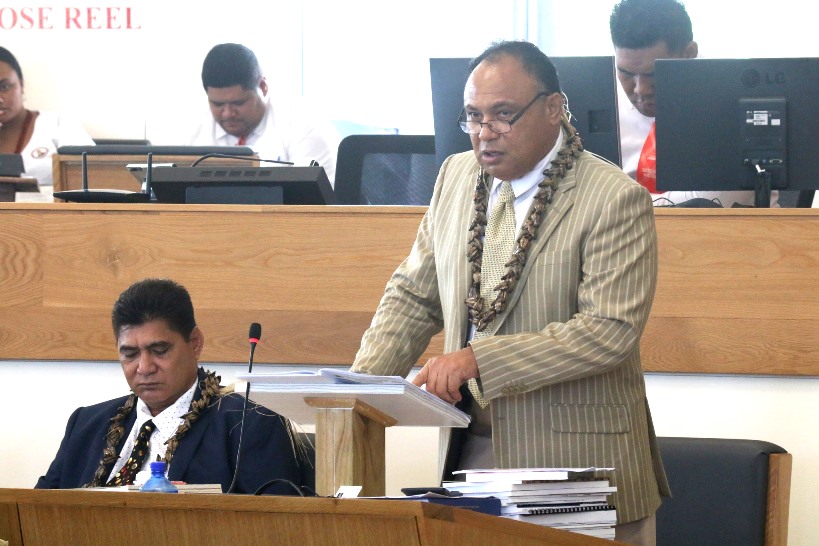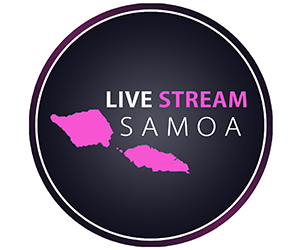Latest
Committee supports removing 10% quota for women parliamentarians

By Lagi Keresoma
Apia, Samoa – 26 October 2023: The Parliamentary Committee that reviewed the Commission of Inquiry’s Report set up after the 2021 general elections, has accepted the recommendation to remove the 10% quota for women parliamentarians.
Chairman of the Parliamentary Committee, Deputy Speaker Auapaau Mulipola Aloitafua presented the Committee’s report in its entirety that accepted only 12 of the 57 recommendations made by the Commission of Inquiry.
Some of the 10 issues the Commission of Inquiry (COI) looked at included the electoral roll, women representation in politics, electoral/political constituencies boundaries, eligibility of election candidates, registration of political parties, offences and legal issues, opportunity for Samoan overseas to vote and responsibilities and obligations of the Office of the Electoral Commission.
“Our findings were based on the number of people that voiced their opinions on issues during the consultations,” said Auapaau.
He said of Samoa’s population of 205,557, only 2,175 took part in the consultations with the COI with 685 students, 37 organisations and 1000 plus who participated at village consultations.
Removal of the 10% quota for women in Parliament
The COI recommended three options for the quota for women representation in parliament. Auapaau did not disclose the options in detail but said all three options were rejected by the Special Parliamentary Committee.
He also said the Constitution is also not clear on the 10% quota and the Committee decided to reject it altogether.
One of the very first MPs to speak on the report when it was open for debate, was Aliimalemanu Alofa Tu’u’au, the first woman to be elected when the 10% was activated after the 2021geneal elections.
Emotional and stopping after failing to continue as she openly cried, Aliimalemanu pleaded with the Committee to restore the 10% quota as she advocated for the future of women representation as this was the window she came through to parliament.

On her swearing in after making it in parliament through the 10% quota, Aliimalemanu Alofa Tuuau, is with her sister in law Masefili Ieremia and Mulipola Anarosa Ale Molioo, Samoa’s first woman Minister of Finance who was elected to parliament on her own merit as a female matai.
Minister of Works, Olo Fiti Vaai was one of several on the government benches who clarified that women have two avenues to get into parliament – through the general or by elections and the quota which is an imbalance compared to opportunities available to male candidates.
Former cabinet Minister Tuuu Anasii Leota who opposed the idea when it was originally discussed, said the quota is an unfair avenue to elect women parliamentarians as they would not be considered the same status as those MPs who were elected through a general or a by-election.
He insisted that respect for Samoan women in the cultural context remains and that women are given the same opportunities to compete for a seat in parliament, but the quota is more an UN effort to provide women access in countries such as in Africa, with very little recognition of the rights of women.
Transition from Electoral to Traditional Constituencies
The Committee noted the importance of traditional constituencies and hierarchy for the stability and smooth administration throughout Samoa.
Auapaau noted that the majority of opinions voiced at the consultation preferred going back to the old electoral system of traditional constituencies over the electoral constituencies.
The Committee has agreed to the COI recommendation and added some of their own amendments to the following recommendations.
- Faleata & Vaimauga remain as 4 constituencies
The Faleata and Vaimauga remain as is with four electoral constituencies.
- Establishment of Urban Constituencies
The Committee has recommended the establishment of three urban seats to be called Urban West, Urban East and Central Urban Constituencies.
Only those residing in these areas are eligible to run as candidates and vote in these constituencies.
- Reinstatement of Gaga’emauga 2 & return of Leauva’a to Gaga’emauga 1
The Gaga’emauga 2 constituency comprising Sale’aula and Salamumu that was removed by the 2020 Electoral Act has been restored given its vital role as one of the six traditional orators guild – Puleono in the Samoan history.
The two villages were placed under a different constituency that the Committee believed created tension and discomfort and it was time to correct it.
The same with the Gagag’emauga 1 constituency when the village of Leauva’a was removed from the rest of the constituency in Savaii and placed under a new constituency of Sagaga 3 in Upolu.
- Additional seat for Aiga I le Tai constituency
The Committee also recommended an additional seat for Aiga I le Tai which Auapaau said has the second highest population count. The Committee recommends to have the villages of Sagafili, Mulifanua, Fuailolo’o, Lalovi, Mulifanua and Samea under the Aiga I le Tai seat.
The other seat would be known as Aiga ile Tai Atu Motu constituency which will include the islands of Manono Tai, Manono Uta, Apolima Tai and Apolima Uta.
A house for Tumua ma Pule
The Committee has also rejected the COI recommendation to establish a second house – like a Senate for Tumua ma Pule. The Chairman said this recommendation was outside the COI’s brief; however the question was already also put to the vote in the 1990 plebiscite and was rejected.
As for the diaspora to vote from overseas, the Committee decided to leave that up to the Executive.
The debate on the Parliamentary Committee’s report continues this week.















